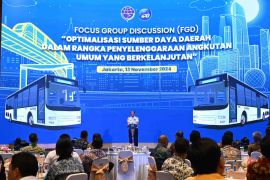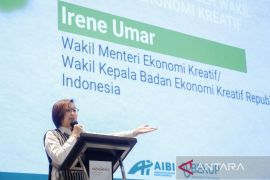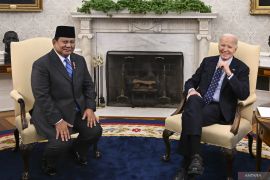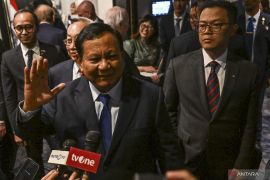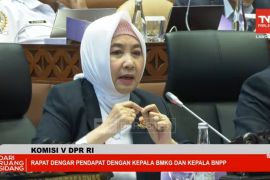Asean, US Collaborate for Stronger Science-Based Policy Making
Selasa, 8 April 2014 11:07 WIB
Jakarta (Antara) - ASEAN Deputy Secretary-General for ASEAN Socio-Cultural Community Alicia dela Rosa Bala and US Chargé d'Affaires a.i. Timothy Hefner, here on Monday, formally inaugurated the ASEAN-U.S. Science and Technology Fellows Pilot Program.
The program, managed by the United States Agency for International Development (USAID) in partnership with the U.S. Mission to ASEAN, will support eight scientists from academia to work for one year in government ministries in their five home countries with the goal of increasing utilization of science, technology and objective analysis of existing data in decision making, according to a statement posted on the Jakarta-based ASEAN Secretariat's official website.
"As ASEAN continues its community-building process, there is a significant role for science and technology to inform policy choices in many disciplines," said Deputy Secretary General Alicia dela Rosa Bala.
The program would ensure that ASEAN Member States increasingly utilize science when making difficult policy decisions.
"I congratulate the fellows that have been selected for this pilot program and I hope that this opportunity will allow them to learn hands-on about the intersection of policy and science, while they contribute their knowledge and analytical skills to government ministries."
Eight fellows will work for one year in the fields of biodiversity, climate change, early warning for disaster risk reduction, health and water management in the Ministry of Research and Technology in Indonesia, the Ministry of Transport in Myanmar, the Department of Science and Technology in the Philippines, the National Science and Technology Development Agency in Thailand and the Ministry of Science and Technology in Viet Nam.
During a four-day orientation last week, the fellows and their future supervisors discussed and learned from experts how to make science and technology accessible to policy makers in Southeast Asia where science and technology can add value to critical decisions, such as strengthening regional cooperation in the conservation of biodiversity for a sustainable future. At the end of the orientation, the fellows prepared action plans for how they would engage their new home ministries.
One of the fellows from Aceh, Indonesia expressed the hope that she would be able to "combine science with Indonesia¿s development priorities, and learn how to develop best policies and practices via the utilization of appropriate and correct technology and science to benefit many people."
"The United States is pleased to partner with the ASEAN Committee on Science and Technology and the ASEAN Secretariat to begin this exciting program," said Timothy Hefner, Chargé d'Affaires of the U.S. Mission to ASEAN. "Our government has benefitted from similar programs for many years and we believe the end result is better policies to address critical challenges." (*)


